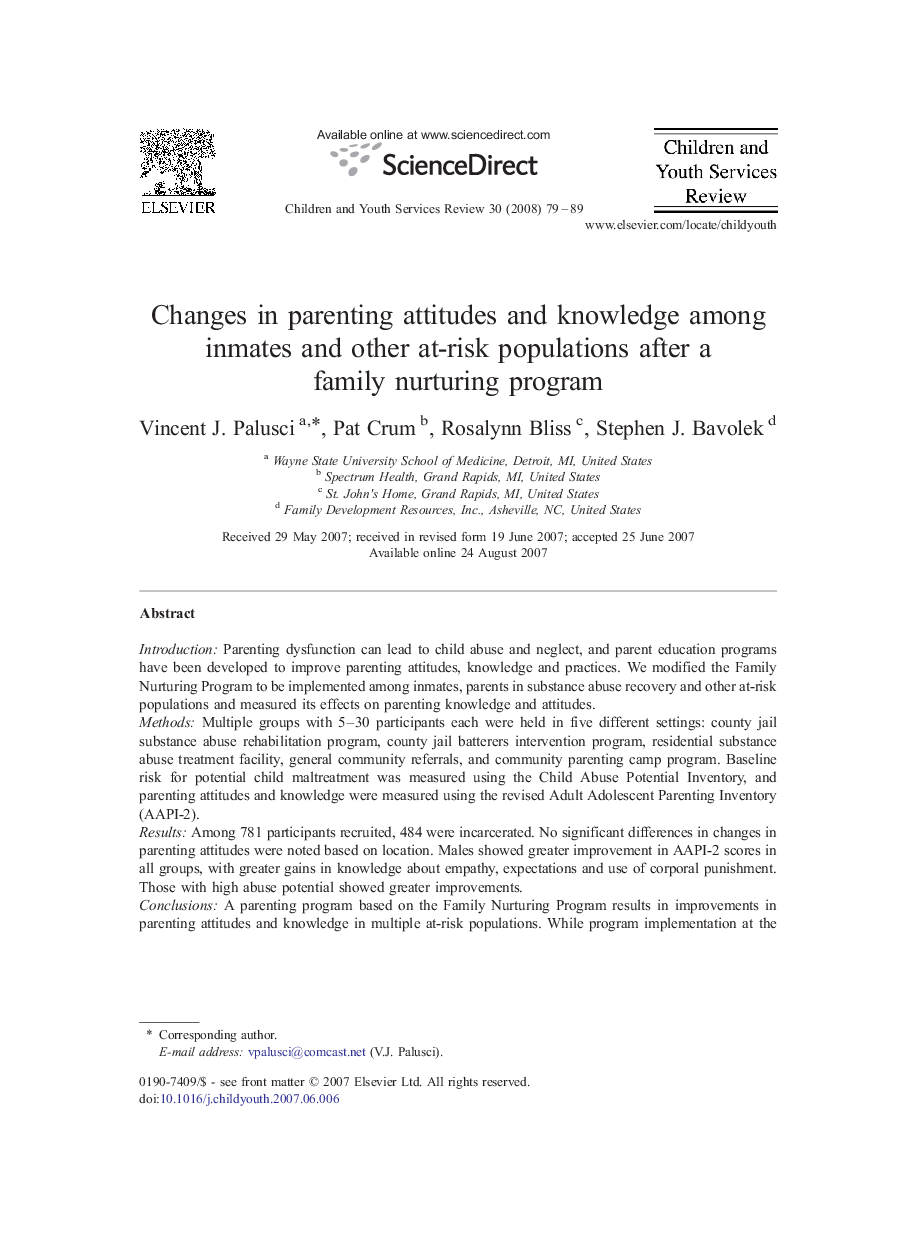| Article ID | Journal | Published Year | Pages | File Type |
|---|---|---|---|---|
| 347063 | Children and Youth Services Review | 2008 | 11 Pages |
IntroductionParenting dysfunction can lead to child abuse and neglect, and parent education programs have been developed to improve parenting attitudes, knowledge and practices. We modified the Family Nurturing Program to be implemented among inmates, parents in substance abuse recovery and other at-risk populations and measured its effects on parenting knowledge and attitudes.MethodsMultiple groups with 5–30 participants each were held in five different settings: county jail substance abuse rehabilitation program, county jail batterers intervention program, residential substance abuse treatment facility, general community referrals, and community parenting camp program. Baseline risk for potential child maltreatment was measured using the Child Abuse Potential Inventory, and parenting attitudes and knowledge were measured using the revised Adult Adolescent Parenting Inventory (AAPI-2).ResultsAmong 781 participants recruited, 484 were incarcerated. No significant differences in changes in parenting attitudes were noted based on location. Males showed greater improvement in AAPI-2 scores in all groups, with greater gains in knowledge about empathy, expectations and use of corporal punishment. Those with high abuse potential showed greater improvements.ConclusionsA parenting program based on the Family Nurturing Program results in improvements in parenting attitudes and knowledge in multiple at-risk populations. While program implementation at the locations was different, changes in scores were related to participant gender, number of classes and a priori child abuse potential risk.
